New Rugby Australia boss says organisation was a ’war zone’ after Raelene Castle left it in financial ruin
Rugby Australia’s new boss has blown the lid on the ‘war zone’ that Raelene Castle left the game in and how friendly fire from across the Tasman helped create ‘a Fortress Australia mentality’.
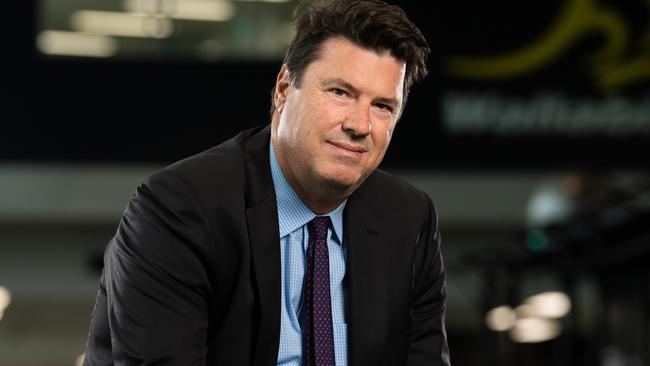
Wallabies
Don't miss out on the headlines from Wallabies. Followed categories will be added to My News.
Even before he teamed up with Rob Clarke for the job of trying to save Rugby Australia, Hamish McLellan was warned the organisation was a basket case.
A former News Corp executive and boss of Network Ten boss, McLellan had already figured that out himself – along with everyone else.
The Wallabies had plummeted to seventh in the world – their lowest ever ranking ever – and Raelene Castle had just quit as chief executive, leaving the game in financial ruin after turning down a broadcast deal that would have safeguarded the sport’s future during the global pandemic.
Watch every match of the 2020 Bledisloe Cup & Tri Nations Live & On-Demand on Kayo. New to Kayo? Get your 14-day free trial & start streaming instantly
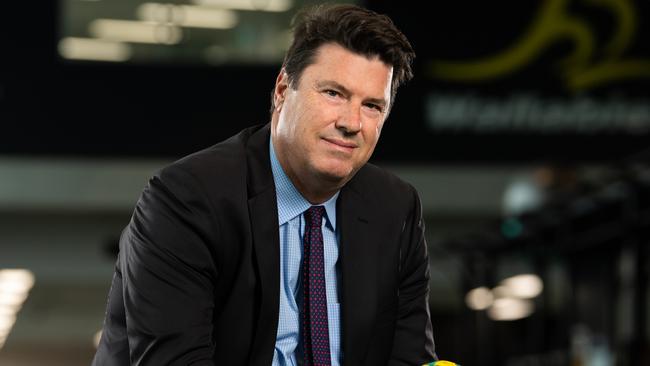
RUGBY NEWS
Stunning deal to bring Rugby World Cup to Australia
How family reunion made up for pain of isolation
Are Wallabies shock selections so cuckoo they might succeed?
What McLellan wasn’t prepared for though was just how deep rooted the problems were behind closed doors, even though the previous chairman, Peter Wiggs, had flagged how rotten the joint was when he resigned in frustration after less than six weeks at the helm.
An old-fashioned straight shooter, McLellan didn’t mince his words: “The whole organisation was a war zone.
“I was deeply concerned about the long-term viability of the game because everyone was fighting and there was no focus on the right outcomes and how we were going to win.”
McLellan found a kindred spirit in Clarke, who had postponed his plans to go sailing in the Mediterranean to do his part in rescuing the game he loved.
Together they agreed to do whatever it takes to save rugby from going under – even though that meant making the tough decisions that were needed, including cutting players’ wages and sacking more than a third of staff.
They didn’t win any popularity contests as the relentless attacks on RA continued unabated but their actions created a leaner, nimbler organisation that was able to weather the storm.
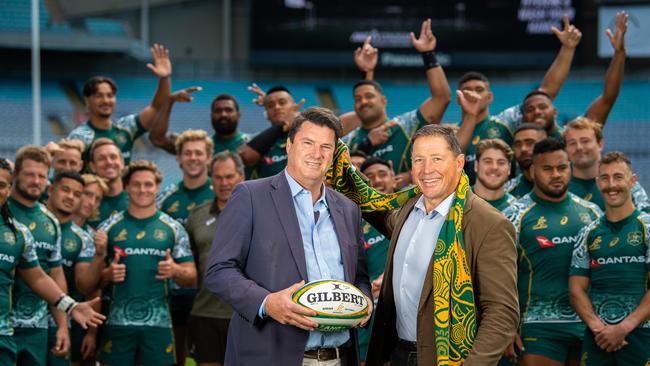
“Rob and I weren’t quite sure where the hits were coming from but we made the best decisions based on where we were at any given point in time,” McLellan said.
“I think people are realistic that when you’re in a time of crisis, they appreciate tough calls being made because that sends a message around the direction you want to go.
“We had to protect the game and there’s absolutely no doubt that RA was overstaffed and needed a complete change in direction, and what we’re finding now is that with the bureaucracy gone, there’s great energy there.”
Even so, reducing the costs was akin to the little Dutch boy who stuck his finger in the dyke. The dam was ready to burst unless they could restart the cash flow.
With international travel halted, RA was banking on a domestic Super Rugby tournament to keep the money coming in, but when the state borders started closing, the competition was suddenly 48 hours from collapsing.
Without a domestic competition to meet its broadcasting commitments, the fear was RA may well have gone under, so they had to act swiftly and relocate the Western Force and the Melbourne Rebels to New South Wales with hardly a minute to spare.
“The thought of us not playing was inconceivable so we just had to find a way,” McLellan said.
“At the time we were nearly broke so we were concerned that if that link in the chain was broken, that would affect our performances with the Wallabies and our commercial negotiations.”
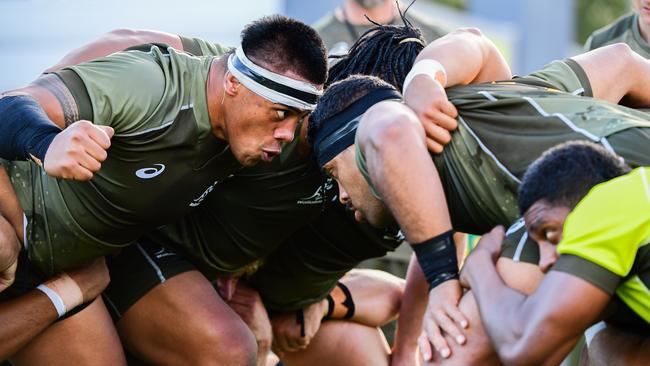
After dodging that bullet, McLellan didn’t foresee that the next incoming shot would be friendly fire from our near neighbours.
When the Australian and New Zealand rugby boards needed each other more than ever, the Kiwis went rogue, declaring they didn’t want more than two Australian teams in a proposed trans-Tasman competition because our sides weren’t as good as theirs.
It marked a new low in relations between the two countries, but instead of killing the game in Australia, New Zealand’s petulant behaviour had the opposite effect.
Backed into a corner, McLellan and Clarke came out swinging, and landed some big punches.
The Rugby Championship, which had been promised to New Zealand, was relocated to Australia, starting with Saturday’s Bledisloe Cup clash at Sydney’s Olympic stadium.
More significantly, New Zealand’s arrogance helped unite the divided Australian rugby community and left the Kiwis with egg on their faces when the Wallabies showed they were good enough when they drew with the All Blacks in the series opener.
“At the time, I thought it was diabolical but in hindsight they actually did us a huge favour because we became very focused, even maniacal about protecting the players, grassroots and Australian rugby,” Mclellan said.
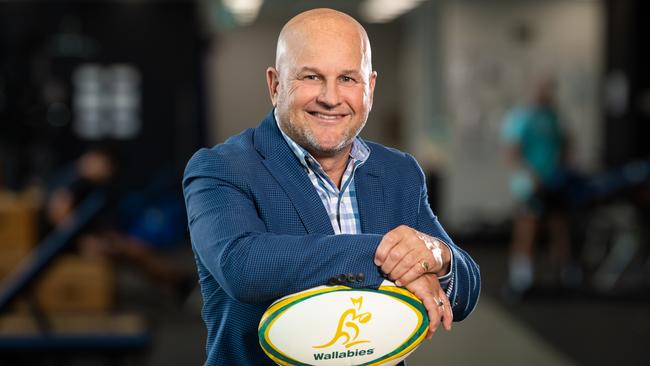
“It created a Fortress Australia mentality because we had no one to rely on but ourselves and the whole organisation dug in behind keeping the game alive. We’ve come out of it stronger. We weren’t going to be pushed around.”
“Things are on the improve and I think there’s an acknowledgment after all that we’ve been through that we’re better together and our futures will be stronger if we create an ANZAC block with international rugby.
“There were times when I was really concerned that the whole thing was going to topple over but I think we’ve stabilised the game and we’re not even at the midway point which is actually really exciting.
“There’s a ton of upside with the Lions tour in 2025 and hopefully the Rugby World Cup in 2027, and if our performance on the field continues to improve, anything can happen with this game.”

